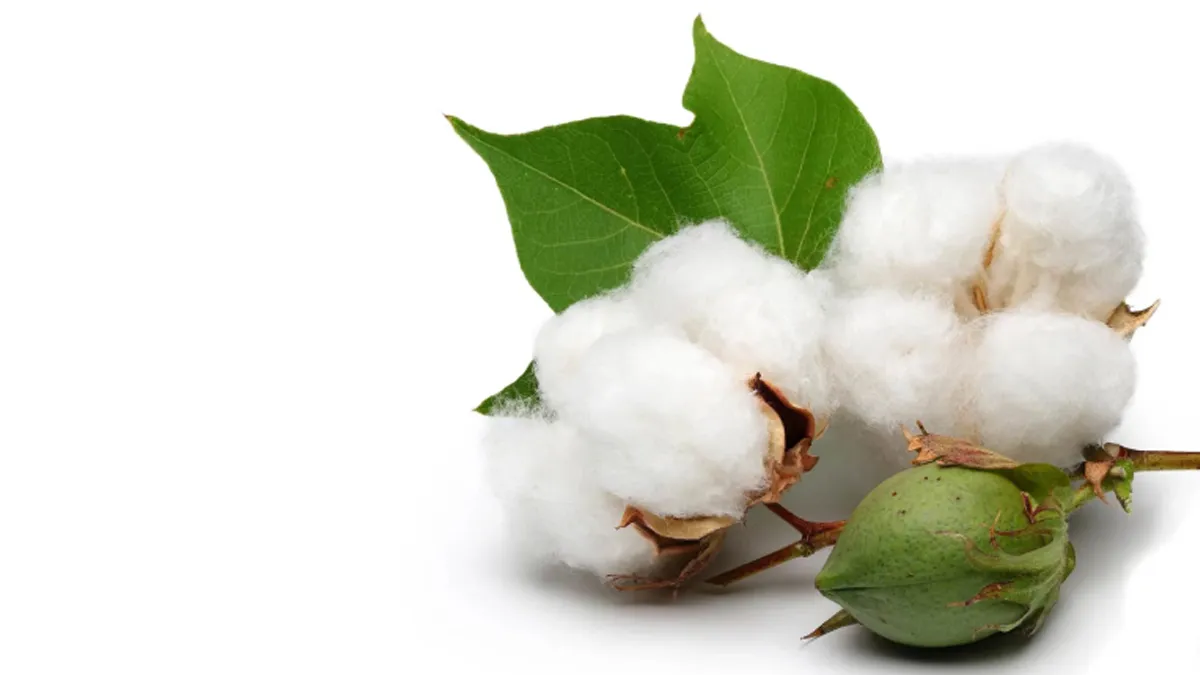You grab a brand-new organic cotton t-shirt or tote bag. It feels soft, natural, and just right. After the first wear, you throw it in the wash, and when you put it on again—it feels a little snug. That’s usually the moment people start wondering: does organic cotton shrink?

The truth is yes, organic cotton can shrink. But how much it shrinks, when it happens, and how you can prevent it are all things you can control. In this guide, we’ll break everything down: the science of shrinkage, what makes organic cotton unique, how it compares to synthetic fabrics, case studies with tote bags, and eco-friendly ways to care for your cotton so it lasts longer.
What Is Organic Cotton?
Organic cotton is cotton grown without harmful chemicals, pesticides, or GMOs. Farmers use natural farming methods, crop rotation, and safer pest control to produce cotton in a more sustainable way.
When you pick organic cotton, you can actually feel the difference. It is softer, it lets your skin breathe, and if you have sensitive skin, you do not need to worry about harsh chemicals. You are also making a choice that is better for farmers and kinder to the planet. And the best part? When its life is over, it is biodegradable and eco-friendly, so you can feel good about it from start to finish.
But when it comes to shrinkage, organic cotton behaves almost the same as regular cotton—both are natural fibers that react to heat and water. The difference is that organic cotton is usually less processed, so it might respond more directly to washing conditions.
Why Does Organic Cotton Shrink?
Cotton fibers are basically made of cellulose, which is like a plant-based sponge. They love to soak up water. When cotton is woven into fabric, the fibers get pulled and stretched under a lot of tension to keep everything tight. The moment you wash it, especially in hot water, those fibers relax and try to snap back to their natural shape. Then if you throw the fabric in a hot dryer, the heat makes the fibers pull even tighter, and that’s when you notice your cotton clothes or bags getting smaller.
Three Key Shrinkage Triggers
- Water – Fibers swell and then contract.
- Heat – High temperatures tighten the weave.
- Mechanical stress – Tumbling or heavy spin cycles push fibers back into shape.
That’s why shrinkage is strongest in the first wash. After fibers settle, the fabric stabilizes.
How Much Does Organic Cotton Shrink?

Organic cotton does shrink, but how much depends on how you wash and dry it. The first wash usually brings the biggest change, and from there it mostly stabilizes. Gentle care like cold water and air drying keeps shrinkage small, while hot water and high dryer heat can make it shrink a lot more. Pre-shrunk organic cotton, on the other hand, is designed to stay closer to its original size.
| Washing & Drying Method | Typical Shrinkage Range | Notes |
|---|---|---|
| First wash (cold water, air dry) | 2% – 3% | Most gentle method, very little change. |
| Warm wash, low heat dry | 4% – 5% | Some shrinkage, usually not noticeable in fit. |
| Hot wash, high heat dry | 8% – 10% (up to 20% for loose knits) | Biggest risk, items may feel much smaller. |
| Pre-shrunk organic cotton | Less than 3% | Specially treated to minimize shrinkage. |
Shrinkage by Product Type
| Product | Shrinkage in Cold Wash | Shrinkage in Hot Wash + Dryer |
|---|---|---|
| T-shirt (jersey knit) | 2–3% | 8–10% |
| Bedsheet (woven) | 3% | 6–7% |
| Tote bag (canvas) | 1–2% | 4–5% |
| Hoodie (fleece) | 4–5% | 10–12% |
Pre-Shrunk vs Non-Pre-Shrunk
Some organic cotton goes through a process called Sanforization, which is just a fancy word for pre-shrinking the fabric before it ever gets to you. If the fabric has been pre-shrunk, it usually only changes about 1–3 percent after washing. But if it has not been treated, shrinkage can easily reach 5–10 percent, especially if you wash in hot water or use a high heat dryer. That is why it is always worth checking the label. If you see words like pre-shrunk, sanforized, or pre-washed, you know the fabric will stay closer to its original size.
| Type of Organic Cotton | Typical Shrinkage | What It Means for You |
|---|---|---|
| Pre-shrunk / Sanforized | 1–3% | Minimal change after washing, safer for sizing. |
| Non-pre-shrunk | 5–10% | More noticeable shrinkage, especially with heat. |
Factors That Influence Shrinkage
Shrinkage is not random—it depends on choices you make.
| Factor | Effect on Shrinkage |
|---|---|
| Water temperature | Hot water = more shrinkage. Cold water = minimal. |
| Drying | High-heat tumble drying is the #1 cause of shrinkage. |
| Cycle type | Gentle cycle = less stress, less shrinkage. |
| Detergent | Harsh chemicals weaken fibers. |
| Fabric type | Loose knits shrink more, tight weaves shrink less. |
| Blends | Cotton-polyester blends shrink less than 100% organic cotton. |
Does Organic Cotton Shrink Every Time?
No, organic cotton does not keep shrinking every time you wash it. Most of the shrinking happens during the very first wash because that is when the fibers finally relax back to their natural state. After that, the fabric becomes much more stable. As long as you stick to cold or lukewarm water and avoid throwing it into a high heat dryer, you should not see much, if any, additional shrinkage. In fact, once the initial change is done, your organic cotton clothes, sheets, or tote bags usually hold their size well and can last for years with the right care.
Organic Cotton vs Synthetic Fabrics Shrinkage
This is where things get interesting. Many people switch to organic cotton because it’s natural, but they also want to know how it compares to polyester, nylon, or spandex.
| Fabric | Shrinkage Behavior | Durability |
|---|---|---|
| Organic Cotton | Shrinks 3–5% first wash, more with heat. | Strong, breathable, but needs care. |
| Regular Cotton | Similar shrinkage to organic. | More chemically treated, sometimes more stable. |
| Polyester | Almost no shrinkage. | Less breathable, not eco-friendly. |
| Nylon | Resistant to shrinkage. | Can stretch, less durable long term. |
| Spandex/Elastane | Holds shape, doesn’t shrink. | Loses elasticity over time. |
| Cotton-Poly Blend | Shrinks less (1–3%). | More stable, less natural. |
Bottom line: Organic cotton may shrink more than synthetics, but it offers breathability, comfort, and eco-friendliness that synthetic fibers can’t match.
Case Study: Tote Bag Shrink Test
At Initi, we wanted to see how much organic cotton tote bags really shrink under different washing and drying conditions. Because tote bags are usually made of thicker canvas compared to t-shirts or sheets, we expected them to behave a little differently.
Test Conditions
We tested three common scenarios that most people might use at home:
- Cold wash, air dry – the most gentle method.
- Warm wash, low heat dry – a middle-ground approach.
- Hot wash, high heat tumble dry – the harshest conditions.
Results in Detail
- Cold wash, air dry: Shrinkage was around 1.5 percent. It was almost impossible to notice with the naked eye. The bag kept its shape, and the handles felt the same length.
- Warm wash, low heat dry: Shrinkage went up to about 3.5 percent. The bag looked just a bit smaller, but it was still perfectly usable. Most people would not even notice unless they compared before and after measurements.
- Hot wash, high heat tumble dry: Shrinkage reached roughly 6 percent. At this stage, the bag lost a little bit of its square shape, and the straps felt slightly tighter. While the bag was still functional, the overall look and structure were less crisp.
Summary Table
| Wash & Dry Method | Shrinkage % | What Happened | Usability |
|---|---|---|---|
| Cold wash + air dry | ~1.5% | Hardly noticeable, shape intact | No impact |
| Warm wash + low heat dry | ~3.5% | Slight size reduction, still looks normal | Fully usable |
| Hot wash + high heat dry | ~6% | Bag lost a bit of shape, straps felt tighter | Usable but less neat |
Conclusion: From this small test, we can say that organic cotton tote bags are very stable as long as they are cared for correctly. Because they are made with heavier canvas fabric, they shrink far less than lighter cotton clothing. If you wash them in cold water and let them air dry, you may never notice shrinkage at all. Even under harsher conditions, the shrinkage was modest compared to what happens with t-shirts or hoodies.
How to Prevent Shrinkage?
If you want your organic cotton to hold its shape, the way you wash and dry it makes all the difference. Start with cold water because it is the safest option and keeps the fibers from tightening too much. Always choose a gentle cycle since less agitation means less stress and less shrinkage. When it comes to drying, air drying in the sun or shade works best, and if you have to use a dryer, stick to low heat and never crank it up high. Finally, while the fabric is still a little damp, smooth out wrinkles and gently stretch it back into shape—this simple step helps your cotton stay looking fresh and true to size.
Eco-Friendly Care Methods
Organic cotton is about sustainability, so it makes sense to wash it in eco-friendly ways:
- Cold water saves energy and prevents shrinkage.
- Line drying reduces electricity use and shrinkage.
- Mild, plant-based detergents protect fibers and the planet.
- Wash less often – Cotton doesn’t need daily washes unless it’s heavily soiled.
- Spot cleaning tote bags instead of full washes keeps them in better shape.
By caring for organic cotton the eco-friendly way, you not only prevent shrinkage but also extend the product’s lifespan.
Can You Reverse Shrinkage?
Yes, at least for small shrinkage:
- Fill a tub with lukewarm water.
- Add a capful of baby shampoo or conditioner.
- Soak the item for 30 minutes.
- Gently stretch while wet.
- Lay flat to dry.
This trick works best on shirts and small items. For tote bags or heavy canvas, shrinkage is harder to reverse but usually minimal anyway.
Common Myths About Organic Cotton Shrinkage
- Myth: Organic cotton always shrinks more than regular cotton.
Truth: Shrinkage is similar, but organic cotton may react more naturally because it’s less chemically treated. - Myth: Cold water completely prevents shrinkage.
Truth: It reduces it, but a little shrinkage can still happen. - Myth: Pre-shrunk means no shrinkage at all.
Truth: Pre-shrunk means less shrinkage, not zero.
Conclusion
So, does organic cotton shrink? Yes—but not enough to ruin your clothes, sheets, or tote bags if you care for them properly. Expect 3–5% shrinkage in the first wash, more if you use hot water and high dryer heat. But with cold washes, gentle cycles, and eco-friendly care, you can keep shrinkage under control and enjoy organic cotton for years.
At Initi, we specialize in making organic cotton tote bags, shopping bags, and other eco-friendly products. As a direct manufacturer, we offer OEM, ODM, private labeling, and wholesale services. Whether you need custom printing, unique designs, or large-scale production, we can bring your ideas to life with sustainable organic cotton.
FAQs
Does organic cotton shrink more than polyester?
Yes, organic cotton does shrink more because it is a natural fiber that reacts to heat and water, while polyester is synthetic and almost never shrinks. But polyester also lacks the breathability and comfort of cotton, and it is not eco-friendly. If you want comfort and sustainability, organic cotton is worth the extra care.
Do organic cotton tote bags shrink?
Tote bags made of organic cotton canvas can shrink a little, usually less than 5%, and most of the shrinkage happens in the first wash. Because the fabric is heavier and woven more tightly, the shape stays strong. If you wash in cold water and air dry, you probably will not notice any real difference in size.
Will organic cotton shrink if I only air dry?
Air drying is the gentlest method and keeps shrinkage to a minimum. If you wash your organic cotton in cold or lukewarm water and hang it up to dry, you will rarely see any big size change. Some items may tighten a little in the first wash, but after that they stay stable and last longer.
Should I size up when buying organic cotton clothes?
If the product is not labeled pre-shrunk, it is smart to go up by half a size or one size depending on the fit you want. Most shrinkage happens early, and sizing up gives you a safety cushion. After a wash or two, the garment usually settles into its true size and fits comfortably for the long run.
How many washes until shrinkage stops?
Most of the shrinking happens during the first one or two washes. After that, the fibers settle down and the size stays consistent, especially if you wash in cold water and avoid the hot dryer. Once the fabric stabilizes, you can expect your organic cotton to hold its shape for years with the right care.




